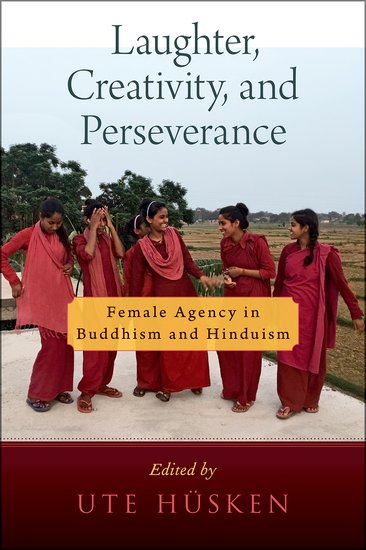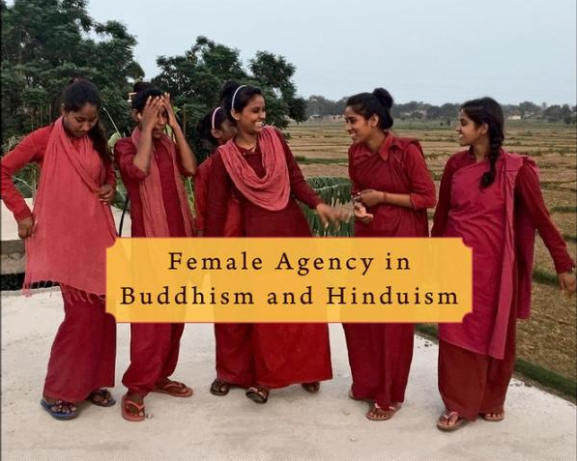Dr. Valeria Gazizova recently has concluded enjoying a 12-months sabbatical in Paris as a visiting lecturer at GSRL (Groupe Sociétés, Religions, Laïcités). GSRL is a unique place for scholars of religions because it is an interdisciplinary laboratory for the research on the transformations of religions, issues of secularisms and religious creativity in the modern and contemporary world. One of its principal overarching programs explores Eurasia, which includes China, Mongolia and Russia. Recently, Valeria alerted me to the release of a new monograph in which her work has appeared. Edited by Ute Hüsken, Laughter, Creativity, and Perseverance: Female Agency in Buddhism and Hinduism is a groundbreaking work that consists of ten case studies on forms of female agency in traditionalist Hindu and Buddhist cultures. Valeria’s study is in the first section of the book, titled: “Exclusion, Secrecy and the (Under)ground: Dynamics of Female Religious and Ritual Agency in Kalmykia.”
Female agency is an overlooked subject in Buddhist Studies and may well be a more productive starting point for conservative Hindu and Buddhist societies than conventional methodological assumptions found in feminist scholarship. The occupation of new positions of leadership occurs in complicated cultural contexts that might be more restricted than what we see in American or otherwise Western definitions of female power. Still, within these cultures, women can claim agency or spiritual authority in ways that are not always known in the West. “Agency” is not so much a component of an egalitarian political position, but one of many factors in the overarching objective of spiritual accomplishment.

For those that are unfamiliar with Dr. Gazizova’s work, here is an excerpt of her profile, which I wrote for a previous issue of my newsletter, BDG Postcard.
Valeria Gazizova is a scholar of late modern and contemporary Buddhist anthropology and history in Russia and Inner Asia, in particular Mongolia and Tibet. She earned her doctorate in the history of religions at the University of Oslo and has conducted extensive ethnographic research on religious transformations, new vernacular spiritualities, and ritual healers in post-Soviet Kalmykia, one of Russia’s majority-Buddhist autonomous republics. At present, she is a Paris-based DAAD (German Academic Exchange Service) PRIME fellow, at the South Asia Institute under the Department of Cultural and Religious History of South Asia at Heidelberg University. Prior to her appointment at Heidelberg, she was a postdoctoral research associate at the University of Cambridge, the Department of Social Anthropology (Mongolia and Inner Asia Studies Unit). She was also previously a Robert H. N. Ho Family Foundation Postdoctoral Fellow.

Her current project has the preliminary title Secret lamas of the Soviet era and their female lineage holders: Gender dynamics in Kalmyk Buddhism since late socialism to the present. It explores religious developments involving changed gender roles in Kalmykia that started during the Soviet era, when Buddhism and indigenous forms of popular worship could only be practiced secretly. The given ethno-historical context provides us with a fascinating and very important study-case of religious innovations and emergence of novel forms of Buddhism that have been generated through state suppression. It also illustrates how the continuity of a religious tradition can sometimes be maintained largely through its transformation.
Valeria says: “My work is at the intersection of Soviet history, Tibetan Buddhist philosophy, anthropology of religious change and broader Mongol or rather Eurasian studies. I hope the publications resulting from it will be of interest not exclusively to the scholars of Buddhism or anthropology of religion among the Mongols, but to a wider academic and perhaps non-academic audience.”


